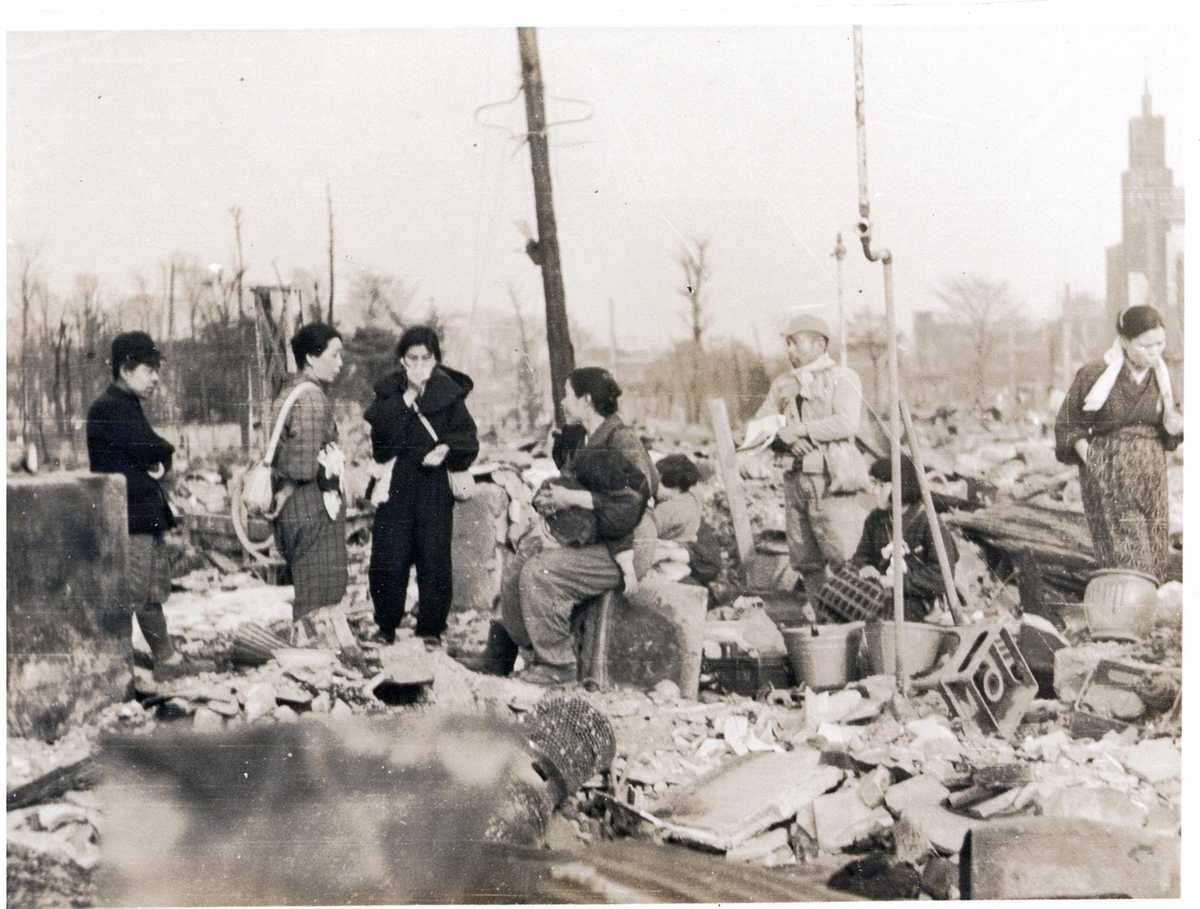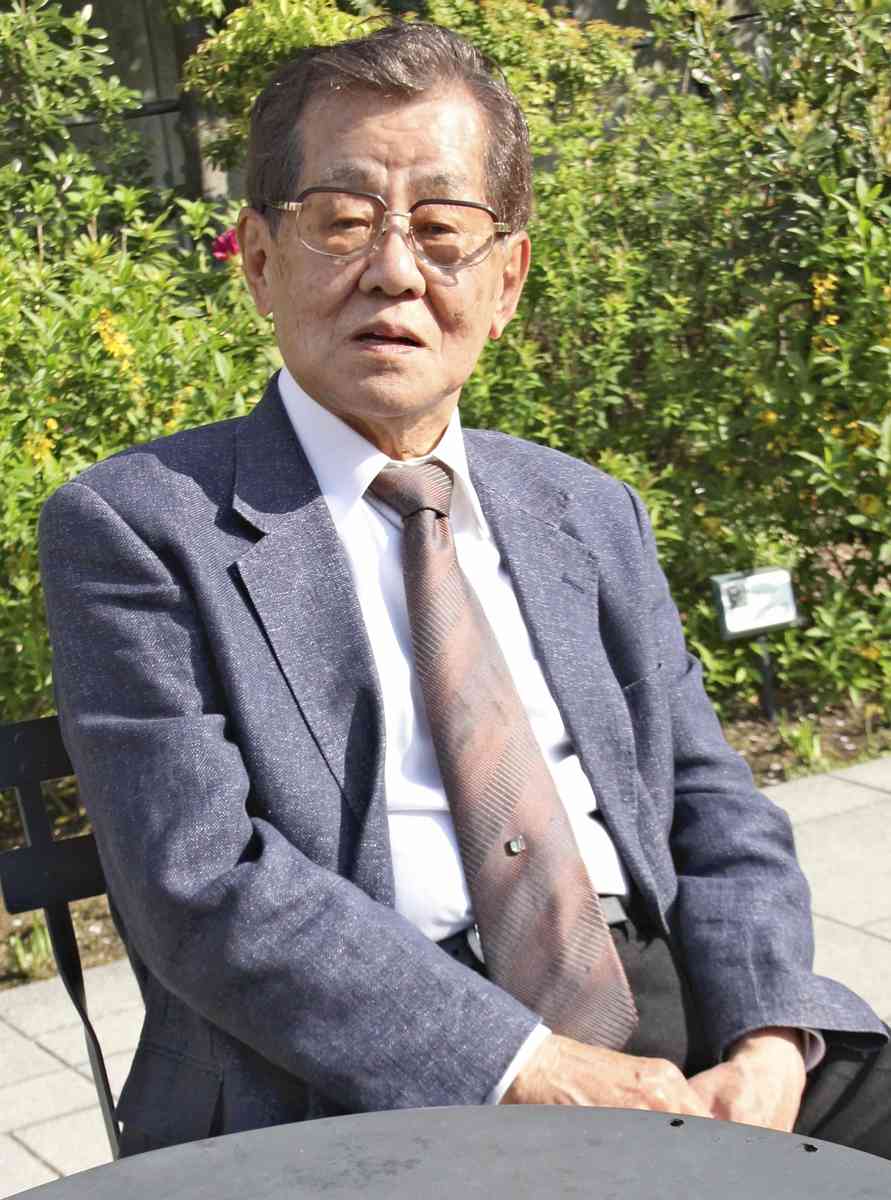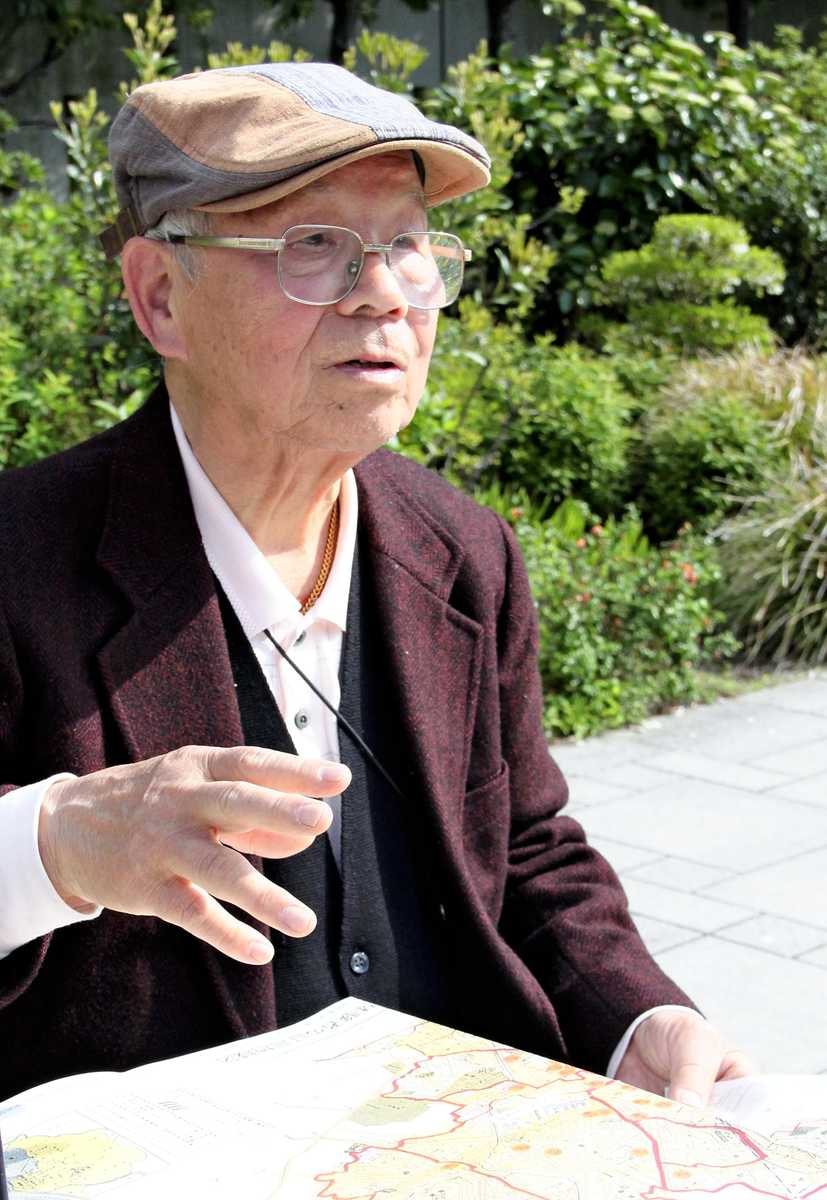Tokyo’s Johoku Air Raid Survivors Recall War’s Horrors after 80 Years; Underscore Suffering of Civilians in Such Tragedies

The area around the north exit of Otsuka Station, which was a burned-out field due to the Johoku air raid, is seen.
1:00 JST, April 16, 2025
Eight decades after the Johoku air raid, which caused an immense loss of life in Tokyo’s Toshima Ward and beyond on April 13-14, 1945, survivors recount their harrowing experiences. In the midst of ongoing global conflicts such as Russia’s aggression against Ukraine, they underscore the disproportionate suffering of civilians and the need to prevent such tragedies.
Executed by the United States military, the Johoku air raid is believed to have targeted an army weapons factory situated in what is now Kita Ward. From late at night on April 13 to early in the morning on April 14, 1945, more than 300 U.S. B-29 bombers attacked Toshima, Itabashi and Kita wards. The death toll reached about 2,500, including 778 victims in Toshima Ward, and about 170,000 houses were destroyed.
“I was 4 years old, but the scene remains etched in my memory,” said Yoshikazu Onda, 84, who experienced the air raid in Toshima Ward and still lives there.

Yoshikazu Onda speaks during an interview with The Yomiuri Shimbun.
On the night of April 13, to prevent the fire from spreading, he and his family soaked their fireproof hoods and clothes with water. His grandfather carried young Onda on his back as they fled.
“Don’t look back,” his grandfather urged, but when Onda glanced back, he saw the city burning bright red. Sparks of fire, carried by the wind, were closing in, but they managed to escape by heading toward areas without flames.
Upon their return home a few days afterward, the only remnants were the stone gateposts and a solitary windmill palm tree in the garden. The landscape around Ikebukuro Station had been transformed into a burned-out field, with only rubble remaining. At a nearby temple, there was a pile of charred bodies, a vision that continues to haunt him, he said.
Onda, who describes himself as “the youngest generation to remember the air raid,” sings anti-war songs at live music venues and speaks of his experiences with children.
“I want to convey the severity and horror of war to as many people as possible,” he said, vowing to continue speaking out as long as he can.
Iwao Aoyama, 88, who lived in Toshima Ward, was 8 years old when he experienced the Johoku air raid.
When the air raid sirens wailed on the night of April 13, Aoyama and his family sought refuge in an air raid shelter in their home. Moments later, incendiary bombs began to hit the area. Because the bombs contained oil, they set ablaze everything in the vicinity.

Iwao Aoyama recounts his memories of the air raid, referencing a map from that time.
Aoyama, his mother and two older sisters jumped out of the shelter and ran toward a pitch-black area that was not engulfed in flames. The thunderous roar of explosions and crashes drowned out all other sounds, making it impossible for them to hear each other. They ran in frantic desperation, dodging people falling down and bumping into the throngs of fleeing people.
Following a brief respite at Nezu Hill, at the time a tree-filled grove that is now Minami-Ikebukuro Park, they were warned of danger and headed for Rikkyo University campus. Fortunately, the school, which escaped bombardment, offered them refuge for the night.
Aoyama remembers seeing numerous evacuees, their faces coated in the black oil residue from the incendiary bombs.
Returning home the next day, he found it reduced to ashes. His family, utterly exhausted, remained silent. Later, they took refuge in Kiryu, Gunma Prefecture, where his older brother and a sister lived in company housing.
Aoyama hesitated before saying, “War should never happen. But…” He feels that it may be difficult to eliminate war as long as humans exist, given the ongoing conflicts around the world such as Russia’s aggression against Ukraine and the conflict between Hamas and Israel.
Over 100 attend memorial service
The 80th annual memorial service for the Johoku air raid was held Sunday at Minami-Ikebukuro Park in Toshima Ward, with more than 100 people, including survivors, attending.
Minami-Ikebukuro Park was once a temporary burial site for air raid victims. The 31st memorial service, held this year in a light rain, included a moment of silence for the victims and floral tributes.
“As the number of war survivors dwindles, we recognize anew the need to pass on their experience of the disaster and the importance of peace to the next generation,” said Toshima Ward Mayor Miyuki Takagiwa.
Top Articles in Society
-

Producer Behind Pop Group XG Arrested for Cocaine Possession
-

Man Infected with Measles Reportedly Dined at Restaurant in Tokyo Station
-

Man Infected with Measles May Have Come in Contact with Many People in Tokyo, Went to Store, Restaurant Around When Symptoms Emerged
-

Woman with Measles Visited Hospital in Tokyo Multiple Times Before Being Diagnosed with Disease
-

Australian Woman Dies After Mishap on Ski Lift in Nagano Prefecture
JN ACCESS RANKING
-

Producer Behind Pop Group XG Arrested for Cocaine Possession
-

Japan PM Takaichi’s Cabinet Resigns en Masse
-

Man Infected with Measles Reportedly Dined at Restaurant in Tokyo Station
-

Israeli Ambassador to Japan Speaks about Japan’s Role in the Reconstruction of Gaza
-

Videos Plagiarized, Reposted with False Subtitles Claiming ‘Ryukyu Belongs to China’; Anti-China False Information Also Posted in Japan























